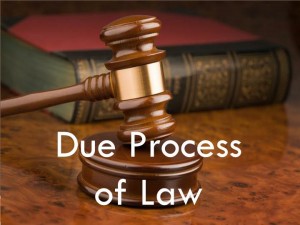People v Valentin
2017 NY Slip Op 03444
New York Court of Appeals
Decided on May 2, 2017
Issue: Whether prosecution is permitted to introduce evidence of a defendant’s prior drug sale conviction on the People’s direct case when a defendant asserts an agency defense supported solely by portions of the prosecutions case in chief.
Holding: When the defendant interposes an agency defense–essentially disputing that his transfer of drugs to the buyer was with the intent to sell–evidence of prior uncharged drug sale allegations is admissible to establish the element of intent on a sale count. Even if the evidence of defendant’s prior drug sale is relevant to the issue of intent, however, the People’s request to introduce such evidence falls to the sound discretion of the trial court and is “admissible only upon a trial court finding that its probative value for the jury outweighs the risk of undue prejudice to the defendant.”
Facts: On May 21, 2010, a group of undercover officers who were conducting a “buy-and-bust” operation, observed defendant and another individual, Barrios, walking together for about 40 minutes. One officer saw Barrios hand the defendant money and the defendant crossed the street to a residential building. The defendant exited the building and walked to Barrios on a street corner. The officer observed defendant hand what was later identified as glassline envelopes of heroine to Barrios, who placed the envelopes in his pants pocket. Police stopped the defendant and Barrios and the arresting officer recovered the two envelopes of heroin from Barrios and eight dollars from the defendant.
After jury selection, defense counsel gave notice to the court that there was a possibility he would put forth an agency defense. Defense counsel asked the jury to consider to consider whether defendant engaged in “salesman-like conduct,” whether he had customers other than Barrios, and whether his behavior was typical of a seller or, rather, someone who was “walking with his buddy.”
During cross-examinations of the police officers, defense counsel questioned the officers about the defendant’s behavior and whether defendant was acting as an extension of the buyer. In support of defense counsel’s contention that defendant and Barrios were friends instead of just knowing one another through a buyer-seller relationship, he noted that one officer observed defendant and Barrios engaging in conversation and the other observed them walking together for 40 minutes. Defense counsel also argued that the eight dollars found on the defendant disproved a profit motive.
The People sought to introduce evidence of the defendant’s prior drug sale convictions in response to the possible agency defense. Defense counsel argued that the People should not be permitted to introduce prior drug sale convictions because the People’s evidence provided basis for the agency defense. The court granted defendants request for an agency defense, but allowed the People to introduce the previous convictions. At defense counsel’s request, the court gave an agency charge to the jury.
Defendant was convicted of criminal sale of a controlled substance in the third degree. The Appellate Division affirmed the judgment on appeal, concluding that the court properly allowed prosecution to introduce the defendant’s previous drug sale convictions.
Analysis: The Court of Appeals has recognized that “that there are certain cases where the defendant’s mere delivery of the drugs does not appear to involve the same degree of culpability, or warrant extreme penalties, associated with pushing drugs.”?People v Chong, 45 NY2d 64, 72 (1978). Therefore, a defendant who only acted as the agent of a drug purchaser cannot be convicted of criminal sale of a controlled substance.
First, the Court of Appeals addressed what constitutes an “agent” in New York. In People v Argibay, the court held that “to be an agent of his buyer, a narcotics merchant must be a mere extension of the buyer,” and People v Roche determined that “the agent must have no direct interest in the contraband being sold.”?People v Argibay, 45 NY2d 45, 53 (1978); People v Roche, 45 NY2d 78 at 85 (1978).
Chong provides that the jury may consider the relationship between the defendant and the buyer, who suggested the purchase, whether the defendant has dealt narcotics with others, and whether the defendant profited from the transaction. People v Chong, 45 NY2d 64 at 75 (1978). However, Molineux provides that evidence of uncharged crimes is inadmissible where its purpose is to “show a defendants bad character or propensity towards crime.”?People v Morris, 21 NY3d 588, 594 (2013).
On the other hand, an exception to the Molineux rule applies when the evidence is relevant to issues other than the defendant’s criminal disposition and “is generally admissible on the theory that the probative value of the evidence will outweigh the potential prejudice to the accused”?Id. A common admissible relevant purpose in drug-related cases is intent to sell. Generally, as noted by the Court, intent is easily inferred from the sale itself. However, here, the Court held that when a defendant presents an agency defense and wishes to dispute his intent to sell, evidence of prior uncharged drug sale allegations is admissible to establish the element of intent. Further, the Court held that it is ultimately left to the lower court’s discretion to grant the prosecution’s request to introduce such evidence if the court finds that its probative value outweighs the risk of prejudice to the defendant.
The Court of Appeals concluded that the defendant here plainly raised the issue of his intent to sell and his role in the drug sale. The trial court, therefore, did not err when it permitted the People to introduce one of the defendants prior convictions.



